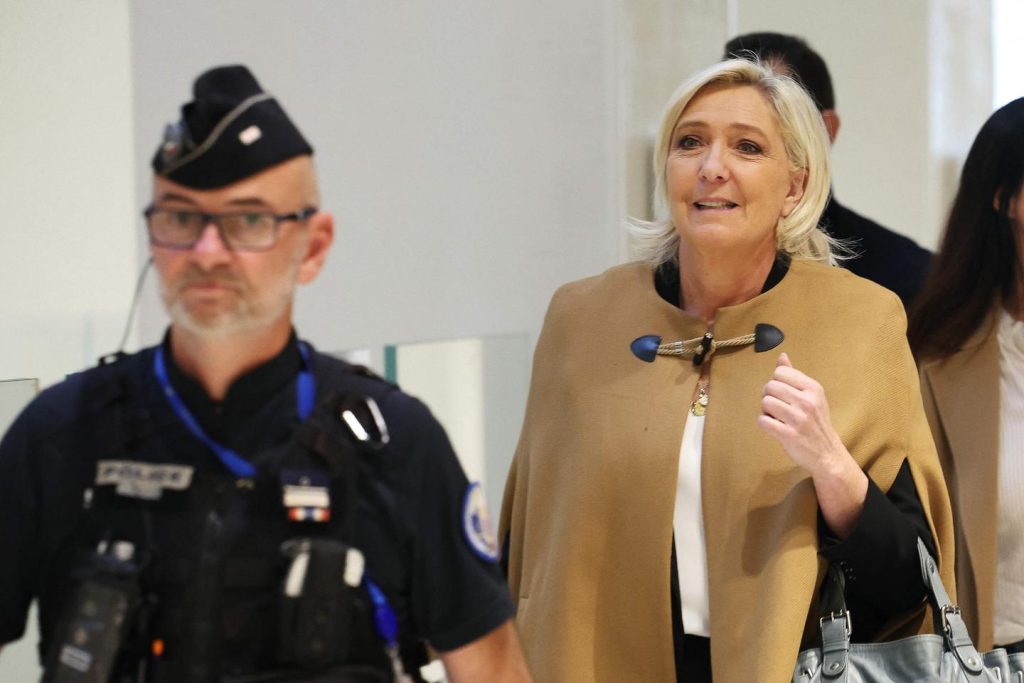Marine Le Pen, current president of the Rassemblement national deputies and former European parliament deputy (2004-2017), was questioned for the first time before the criminal court of Paris on Monday, October 14. The triple presidential candidate, the National Front (FN), and twenty-four other defendants are being tried until November 27, suspected of “embezzlement of public funds, concealment, or complicity” for setting up or participating in a centralized system of managing funds that were meant for paying parliamentary assistants but were allegedly used to pay employees working for the far-right party. During her testimony, Le Pen avoided direct questions but recounted the “context” of her time at the European Parliament, where she explained a system of mutualization among assistants.
Le Pen maintained her innocence, stating that she did not believe she had committed any irregularities or illegalities. When reminded by the tribunal of statements made by a former MEP about people not working at all and having to beg for assistants, she dismissed the claims and focused on discussing the political aspects of her work as a deputy. She emphasized that an elected official works for the benefit of their ideas and party, and that the political activity of an elected official serves the party’s interests. Questions were raised about the collaboration with Catherine Griset, a crucial figure in the case who was alleged to have been Le Pen’s chief of staff at the FN rather than a parliamentary assistant.
At a previous hearing, Le Pen had voiced her frustrations with the prosecution’s handling of the case, accusing them of bias and highlighting the imbalance in evidence presented. The stakes are high for the far-right leader, as she faces the possibility of a prison sentence, hefty fines, and most importantly, potential ineligibility that could hinder her presidential ambitions for 2027. The court proceedings have delved into the intricacies of the contractual arrangements of assistants and their dual roles within the European Parliament and the FN, raising questions about the use of parliamentary funds for party-related activities.
Despite attempts to shift the focus away from the specifics of the case, the tribunal continued to press Le Pen on the details of the allegations, particularly regarding the employment arrangements of certain individuals. The trial has shed light on the inner workings of a political party and the potential misuse of public funds for party-related purposes. As the trial progresses, Le Pen’s defense strategy has revolved around asserting her dedication to serving her party’s interests and challenging the prosecution’s portrayal of the events leading to the charges. The outcome of the trial could have far-reaching implications for Le Pen’s political future and the reputation of the Rassemblement national.


